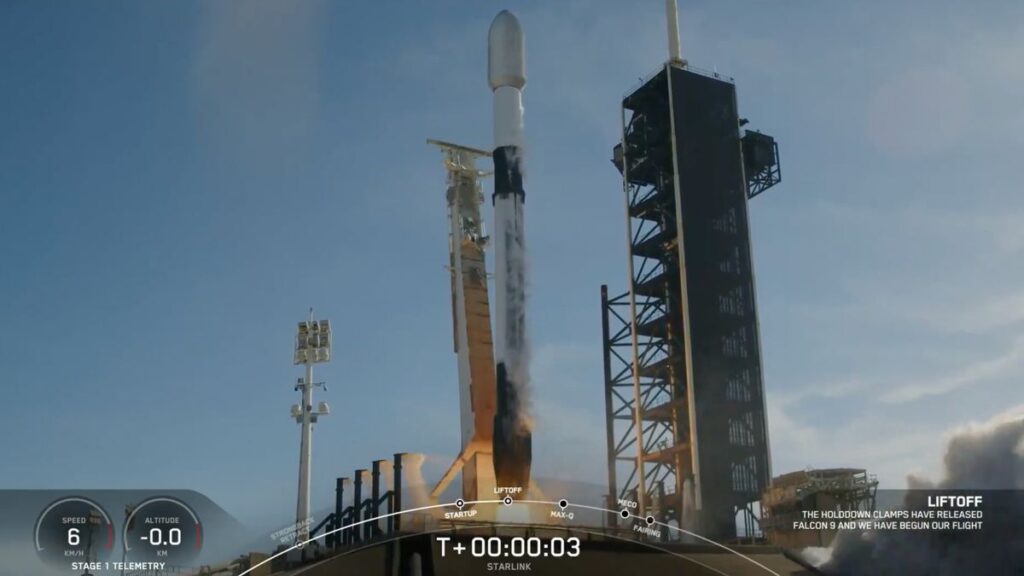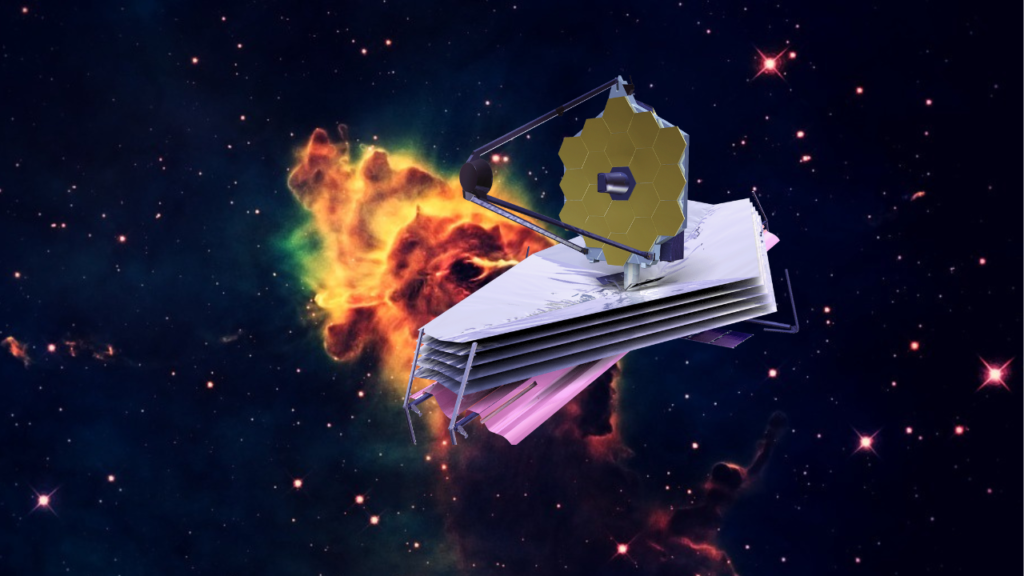A Falcon 9 rocket topped with 23 of SpaceX’s Starlink internet satellites lifted off from NASA’s Kennedy Space Center in Florida today (April 17) at 5:26 p.m. EDT (2126 GMT).
The Falcon 9’s first stage came back to Earth about 8.5 minutes after launch as planned. It landed vertically on SpaceX‘s Just Read the Instructions droneship, which was stationed in the Atlantic Ocean.
Many of us didn’t get to see that milestone in real time; in an unusual occurrence for the company, SpaceX’s livestream feed cut out about three minutes after liftoff.
It was the 12th launch and landing for this particular booster, according to a SpaceX mission description. That’s eight shy of the company’s reuse record, which it set on a Starlink mission just last week.
The Falcon 9’s upper stage continued carrying the 23 Starlink satellites toward low Earth orbit (LEO). It will deploy them there about 65 minutes after liftoff, if all goes to plan.
This evening’s launch was the 39th orbital mission of the year already for SpaceX, and the 26th of 2024 devoted to building out the Starlink network.
The megaconstellation currently consists of more than 5,700 operational satellites, and that number will continue growing far into the future. SpaceX has permission to deploy 12,000 Starlink craft in LEO, and it has applied for approval for another 30,000 on top of that.
Source: https://www.space.com/spacex-starlink-launch-group-6-51



